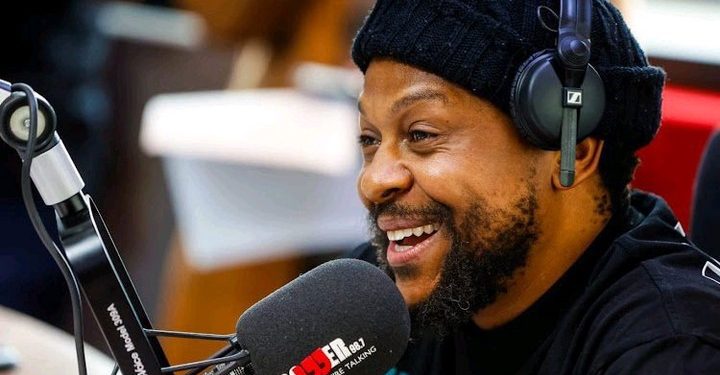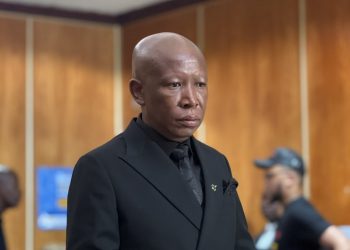Power FM broadcast a live, highly charged encounter between Thabiso, a caller who requested to remain anonymous, and former Economic Freedom Fighters (EFF) Member of Parliament (MP), Dr. Mbuyiseni Ndlozi. Thabiso challenged Dr. Ndlozi about his perceived failure to make a significant difference in the ongoing land reform debate in South Africa.
The debate took place during a call-in session in which Ndlozi, who was well renowned for his eloquence and his passionate speech, was interacting with listeners about national policy problems. Thabiso had a problem with the way that Ndlozi dealt with several topics, especially the land question. This is a highly sensitive and unsolved subject in the post-apartheid government of South Africa.
“Sometimes, the manner in which you handle issues is questionable; I don’t even know if you listen to yourself,” Thabiso commented. When dealing with problems, do not behave as though you are in Parliament. I would want to ask you a question about the land issue. Specifically, I would like to know what you did about it while you were in Parliament.
The challenge ignited a broader discussion that brought into question the function of political rhetoric as opposed to the actual implementation of policies. During his time in Parliament, Dr. Ndlozi was one of the most prominent voices in the EFF. In response to this, he made a bold statement that made a clear separation between legislative powers and executive responsibilities.
“Parliament is not the same thing as government. Parliament does not allocate land. “I was a member of the opposition, and we engaged in a great deal of conflict for the land,” he stated. “The issues that are important to the people needed to be brought up, and pressure needed to be applied to the government; that was our responsibility.”
Ndlozi made a further defence of the actions of the EFF, stating that the party has always been an advocate for *land expropriation without compensation*, which has been a fundamental objective of the organisation since its founding in 2013. In order to bring land reform to the forefront of the national agenda, the EFF launched a number of mobilisations in the public sphere and legislative debates and motions. He made reference to this.
Nevertheless, the apprehensions that Thabiso expresses are representative of a more widespread view among numerous South Africans, who believe that despite the presence of high-profile discussions and emotionally charged speeches, the situation on the ground has remained relatively unchanged. Apartheid’s greatest long-lasting legacy include the unequal distribution of land, which continues to be disproportionately concentrated in the hands of the white minority many decades after the conclusion of white supremacy.
The EFF has been unwavering in its support of radical land reform, although detractors contend that the party’s initiatives frequently remain at the rhetorical level and do not materialise into concrete results. This criticism became particularly prevalent following Parliament’s decision in 2021 to reject a proposed constitutional amendment that would have explicitly allowed expropriation without compensation. The EFF supported the proposal, but other parties, including the ANC and the DA, were opposed to it in its final form.
The heated conversation that was broadcast on Power FM has now become a viral sensation on social media, igniting a fresh discussion about how effective the nation’s political leaders are at dealing with socioeconomic inequalities that have persisted for a long time.
The opinions of the internet pundits and those that tuned in were split. Thabiso was praised by some for holding a political figure accountable, but others said that opposition politicians are faced with institutional barriers that prohibit them from actively enacting policy and defended Ndlozi.
“What additional actions would you like him to take in his role as a member of parliament who is in opposition?” “Bringing up the topic was his responsibility, and that is exactly what he did,” commented one listener on X (previously Twitter).
One other person had a different opinion: “The land issue is nothing new. We have listened to the speeches. “What we need right now is delivery, not more political theatrics.”
Ndlozi, who continues to serve as a senior member of the EFF and as a well-known public intellectual, has not changed his position on the matter. He said the same thing in follow-up interviews: that the fight for land justice is far from over and urged residents to keep placing pressure on those in power.
“Democracy requires more than voting every five years. It requires active participation. If we want land justice, we must continue demanding it — from Parliament, from government, from ourselves,” Ndlozi said.
The Power FM confrontation has highlighted both the passion and frustration that continue to surround the land issue in South Africa. While it reignited important conversations, it also underscored the growing impatience among ordinary citizens who feel the pace of reform has been painfully slow.






















